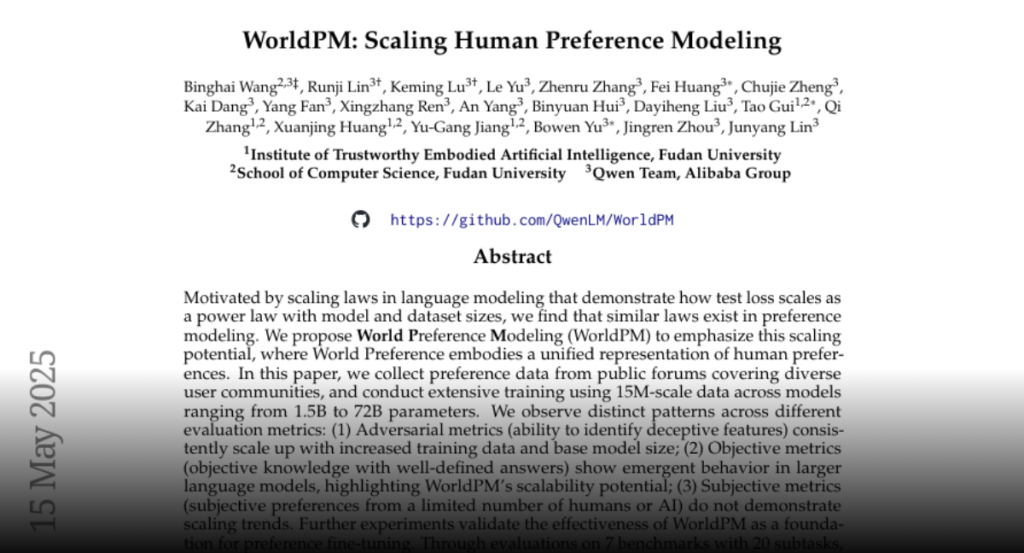Motivated by scaling laws in language modeling that demonstrate how test loss
scales as a power law with model and dataset sizes, we find that similar laws
exist in preference modeling. We propose World Preference Modeling$ (WorldPM)
to emphasize this scaling potential, where World Preference embodies a unified
representation of human preferences. In this paper, we collect preference data
from public forums covering diverse user communities, and conduct extensive
training using 15M-scale data across models ranging from 1.5B to 72B
parameters. We observe distinct patterns across different evaluation metrics:
(1) Adversarial metrics (ability to identify deceptive features) consistently
scale up with increased training data and base model size; (2) Objective
metrics (objective knowledge with well-defined answers) show emergent behavior
in larger language models, highlighting WorldPM’s scalability potential; (3)
Subjective metrics (subjective preferences from a limited number of humans or
AI) do not demonstrate scaling trends. Further experiments validate the
effectiveness of WorldPM as a foundation for preference fine-tuning. Through
evaluations on 7 benchmarks with 20 subtasks, we find that WorldPM broadly
improves the generalization performance across human preference datasets of
varying sizes (7K, 100K and 800K samples), with performance gains exceeding 5%
on many key subtasks. Integrating WorldPM into our internal RLHF pipeline, we
observe significant improvements on both in-house and public evaluation sets,
with notable gains of 4% to 8% in our in-house evaluations.

